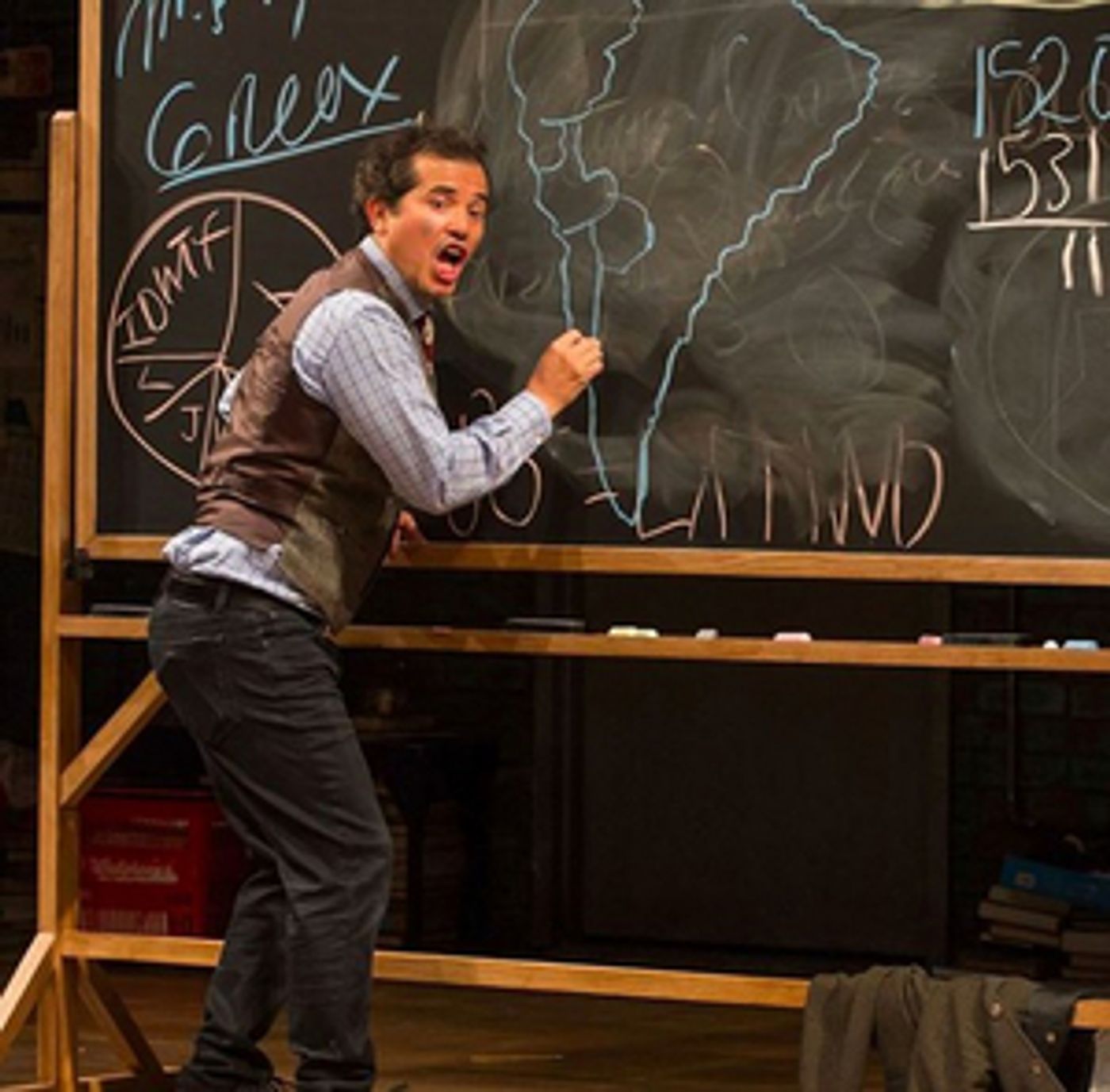Review: LATIN HISTORY FOR MORONS Written By And Starring John Leguizamo

The crotchety, old ushers at Emerson's Colonial Theatre prepared for battle as the two night run of John Leguizamo's Tony Award winning Latin History for Morons descended upon their gilded palace. The bawdy irreverence of the piece with its marked disdain for the systemic white-washing of American history draws an audience that is ready to laugh riotously at commentary on shared pain, jeer at mentions of oppressive forces, and cheer at the slightest acknowledgement of their heritage (utterances of 'Puerto Rico' and 'Columbia' drew equivalent reactions from the crowd as mentions of 'Boston'). As non-traditional theatre audience members (read as: people of color, people who like fun things, etc.) flocked en masse to see the acclaimed voice actor behind the lisping sloth from the Ice Age movies, tensions were palpable. Ushers raced about the theatre, continuing the never-ending Stanford Prison Experiment of commercial arts by exerting their authority over the crowd, but not even their hyper-vigilance could dampen spirits as a master entertainer worked the house.
Leguizamo's play (which could only be insulted should I try to attribute it to a singular genre) fuses comedy, story-telling, and dramatic structure in what may be the most enjoyable, well-rehearsed lecture one could ever attend. Beginning by drawing a timeline on a blackboard, Leguizamo places the Ancient Mayan Empire at one end and rapper Pitbull at the other. He then turns and berates the 'morons' in the audience (of which I was admittedly one) who know nothing about Latin American history between those two points. From there, the solo actor spins tales of Conquistadors and warriors, interpolated with desolate statistics about the oppression of Latin people in America. While not usually the ground plan for a riveting evening, Leguizamo's delivery of cold, hard facts is arresting. The program includes a bibliography of sources, wittily called 'The Syllabus' and the piece itself integrates recognition of major sources in a cavalier way. This is incredibly fortuitous, as material has been curated with such narrative flair that it seems certain many who attend will begin their own inquests into this multifaceted history.
Leguizamo looks dapper in his sport coat and vest as he begins the evening, but before one can even brace for the almost certainly saccharine Edward-James-Olmos-in-Stand-and-Deliver impact, he begins riotously flouncing about the stage, puffing clouds of chalk dust through the air. His blackboard takes a noble beating throughout the course of the show, finishing in a coat of chalk with smears of spit. He provides a worthy foil to the haggard ushers, perfectly at home with the chipper throng and able to conduct its reactions through devastating accounts of genocide or scoffing impressions of Tim Gunn. It seems that there exist two sides to Leguizamo; one with no respect for the powers that be and one with an innate ability to assimilate within power structures.
Tony Taccone's directorial influence is successfully imperceptible, giving an illusion that Leguizamo could have created this performance without any outside imprint, which may be exactly what is intended. Though a smooth, well-paced ride, the script is laced with some dud jokes that do not quite deliver punch lines as much as they rely on audiences' knee-jerk reactions to mentions of Elizabeth Warren or the Kardashians to elicit a round of applause. Likewise, haphazard congruences are drawn between historical oppressors and Trump's current administration that do not feel founded enough to spark actual discourse. The piece gets caught up in a self-aware obsession with military history that at times feels reductive, but one could argue that American history can be essentially laid out through the incessant history of its wars.
As a white theatre-goer, it is an incredible privilege to be welcomed and invited into a space that has not been curated for me (as most theatre is). When reviewing a show intended for a different audience, it is important not to only comment on my own reactions but to share the reactions of the intended audience of the piece. I feel it is worth noting the sense of camaraderie and catharsis I was able to sit adjacent to during this performance. Leguizamo's tales of guiding his son through racist bullying that frame the piece hit close to home for many of the audience members in my immediate area. Ultimately, the audience is left with a positive message about the future of Latin American people and a shoutout to their proven resilience.
While the show is already on its way to Brooklyn, Boston audiences can still catch the recording of its original Broadway run on Netflix.
Reader Reviews
Videos

